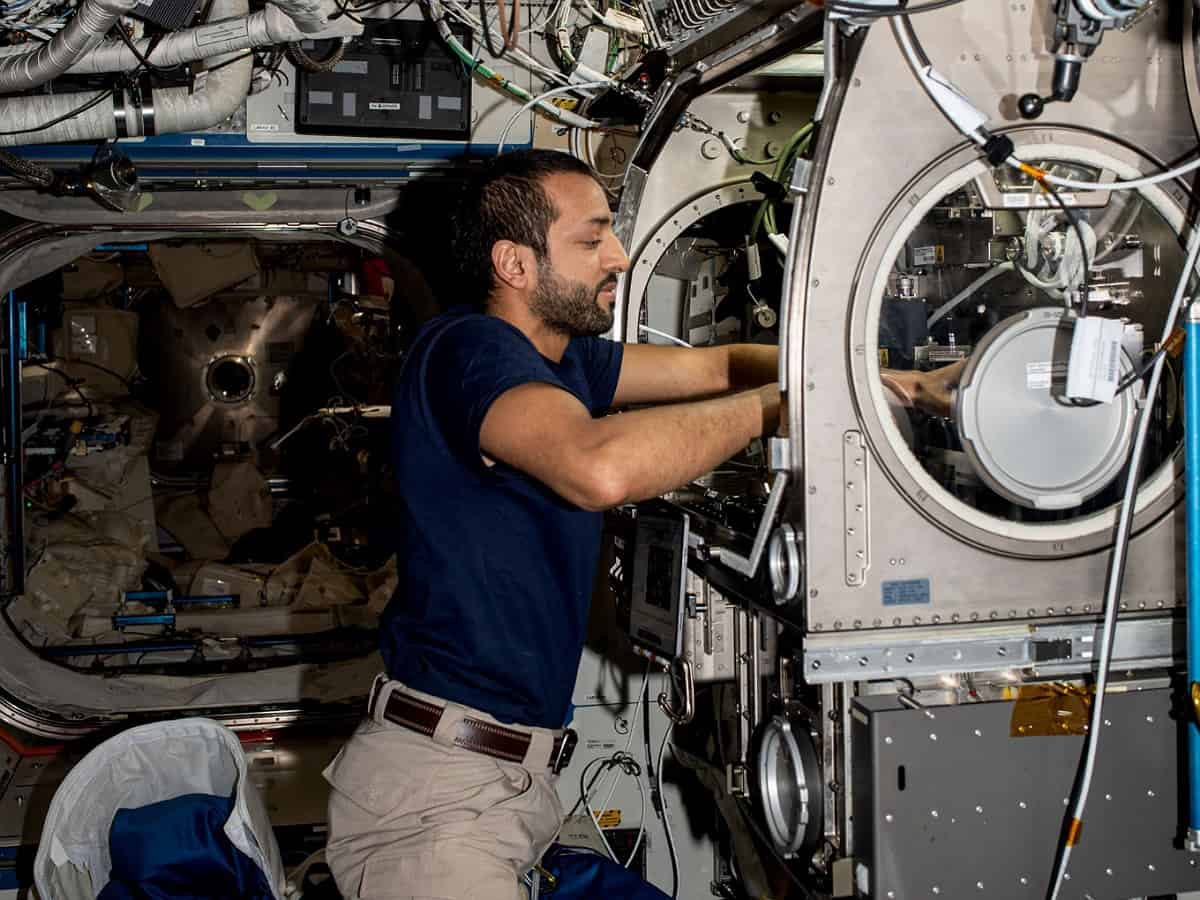
United Arab Emirates (UAE) astronaut Sultan Al Neyadi, has conducted a space experiment— “Ring Sheared Drop” to cure Alzheimer’s disease on International Space Station (ISS), local media reported.
Al Neyadi continues the longest mission of Arab astronauts aboard the ISS, which lasts for six months.
On experimental apparatus that supports advanced aeronautical biology research, Al Neyadi and NASA astronaut Frank Rubio worked all day on Monday.
“Al Neyadi installed a syringe filled with a protein solution inside the Microgravity Science Glovebox (MSG) for the Ring Sheared Drop (RSD) experiment that may provide potential treatments for neuro-degenerative diseases,” NASA was quoted as saying by Gulf News.
Mohammed Bin Rashid Space Centre (MBRSC) shared photo of Neyadi and his colleague.
The Space Centre said, “A photo of astronaut Sultan Al Neyadi and his colleague Warren Hoburg holding the tools used to open the “Unity” module space-facing side aboard the International Space Station.”
“@Astro_Alneyadi removes experiment hardware from the Microgravity Science Glovebox (MSG). MSG provides resources such as power, vacuum, and containment for investigations. The facility is suited to handle hazardous materials and accommodate both physical and biological research,” ISS research tweeted.
Ring Sheared Drop experiment
The Ring Sheared Drop probe probes the formation and flow of amyloid without the complications associated with the rigid walls of a container because in microgravity, surface tension provides fluid confinement.
Liquids can be observed in microgravity without being hampered by the hard walls of containers.
The International Space Station, a manned microgravity laboratory and test facility, offers a platform for liquids research with a variety of applications, from human health to materials, contributing to the orbiting laboratory’s ongoing commercialization.
Extracellular fibrous protein deposits known as amyloids are seen in organs and tissues. It has a connection to neurodegenerative conditions like Alzheimer’s disease. The outcomes of these studies may aid in the creation of cutting-edge materials as well as a better understanding of these disorders.
